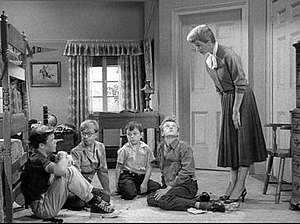One thing is clear, there isn’t a definitive handbook for child-rearing. And while we
parents try our darndest to “do the right thing,” we often fall flat on our faces as a result of being mired by our own childhood stories. I think I can safely say that most of us didn’t grow up in some idealized version of Leave it to Beaver, which is not to say that all of us suffered hellish childhoods either. Still, we have to be careful that we don’t project our own experiences and expectations onto our children. If anything, parenting provides us the opportunity to do things differently. For those of us in recovery, that may also mean facing very real fears that our kids will follow in our sullied footsteps: drinking and using much like we once did.
Adolescence is all about pushing boundaries, experimentation, breaking rules, rebellion, and other assorted behaviors us parents typically loathe. And somewhere in the midst of diaper changes, spit up, and pre-adolescence, many of us simply forget what it was like to grow up. So, if we come across our very own “little Bobby” hung over or high, we are tend to fly off the handle. The truth is, that’s the last thing we should be doing. Our indignation and outrage automatically puts our kids on the defensive, making us the bad guys and the enemy, preventing them from opening up to us. They’re already exerting their independence, distancing themselves from us as much as possible, so being reactive parents will just push them further away. Precisely what we don’t want to do during adolescence. Face it, our teens will rebel. It’s in their nature. But it’s our responsibility to learn to respond to that rebellion skillfully. Even if it means confronting suspected or known drug and alcohol use.
If you suspect drugs or alcohol abuse or already know your child is using, these are some tips from The Partnership for a Drug Free America:
- Talk to your partner or spouse and get in alignment with one another. You need to have a united front.
- Expect denial and even anger.
- Let your teen know you are coming from a place of love and concern.
- Prepare to be called a hypocrite.
- If you are in recovery, show some transparency. Your experience and its outcome is a teaching tool.
- If you smoke or drink, you will more than likely be called out on it by your teen.
- Have some evidence. Denial is a key component during these sorts of confrontation.
- Work toward a desirable and realistic outcome: don’t expect full disclosure.
- Formulate rules and consequences with your partner/spouse beforehand. The last thing you want to do is make snap decisions.
- Don’t set rules you can’t enforce.
- If you have addiction within the family, discuss your child’s pre-disposition toward addiction.
- Be transparent. Talking about your past in a general way is helpful. If we aren’t honest with our kids, how can we expect them to be honest with us?
On occasion, our young ones will ask us questions we may feel are inappropriate or too revealing to answer truthfully, but as puberty hits, and curiosity burgeons, it’s really the time to answer these things as best we can. Our fears and issues need to be set aside, because it’s in those teachable moments where we can affect change. It’s in those moments of honesty and openheartedness where we can provide outlines for healthy perspectives on alcohol, drugs, sexuality, media use, et cetera. Our kids, whether they admit it or not, rely on us to be steady and forthright. If they can’t lean on us, or depend on us, who can they lean on? Who can they trust if we stumble and trip over our own lies while we encourage them to tell the truth? It’s time to be transparent with our teens; they need us to.








